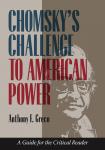
Outside the Gateway Center, where Menendez and Booker have offices. (Photo by Tom Bias.)
[This article was first published on Mondoweiss.]

Outside the Gateway Center, where Menendez and Booker have offices. (Photo by Tom Bias.)
[This article was first published on Mondoweiss.]
 Review of Andrew J. Bacevich, Breach of Trust: How Americans Failed Their Soldiers and Their Country. New York, Metropolitan Books, 2013. 238 pages. Endnotes. Hardcover $26. Paperback $16. Kindle $11.04
Review of Andrew J. Bacevich, Breach of Trust: How Americans Failed Their Soldiers and Their Country. New York, Metropolitan Books, 2013. 238 pages. Endnotes. Hardcover $26. Paperback $16. Kindle $11.04
JULY 21, 2014 — Since the writing of my effort to analyze the Obama foreign policy (“Droning On, Fracking the Planet,” New Politics Summer 2014), a confluence of events – in various ways, all blowback from ravages of U.S policies past and present – combined to transform much of world politics in nasty and dangerous directions, with huge tolls in destruction and human misery. To review very briefly:
The moral collapse of the Obama administration on so many fronts—Guantanamo, Palestine, drone warfare atrocities, mass electronic surveillance and brutal prosecution of whistleblowers, presidential-ordered assassinations, and so much more—has rightly drawn shock and outrage from the peace and global justice movements. Indeed, this presidency has been a civil and human rights travesty both domestically and globally. Alongside our horror, however, must be a clear material and political assessment of the underlying strategic purpose of this administration.
Adopted by U.S. Labor Against the War (USLAW) Steering Committee, June 25, 2014
A majority of working people opposed the Iraq War and participated in the eight year struggle to end it. We felt great relief when the last troops departed Iraq in 2011.
Anthony Greco, in his book Chomsky’s Challenge to American Power, charged Noam Chomsky with too often failing to meet “minimal standards of intellectual honesty” (p. 229). To prove his point he provided instances of things Chomsky wrote over the course of some fifty years that were inaccurate.
I conclude my book, Chomsky’s Challenge to American Power (Vanderbilt University Press, 2014), by describing Noam Chomsky as a contradictory figure.
 Anthony F. Greco. Chomsky’s Challenge to American Power. Nashville: Vanderbilt University Press, 2013. Hardcover $69.95, paper $29.95, e-book $14.99.
Anthony F. Greco. Chomsky’s Challenge to American Power. Nashville: Vanderbilt University Press, 2013. Hardcover $69.95, paper $29.95, e-book $14.99.
 The inner-city parish of La Vega sits in the lush mountain terrain of Western Caracas. Roughly 130,000 poor residents are cordoned off sociologically from nearby El Paraíso, a wealthy neighborhood that supplies the clients for the upscale shopping center that separates the two communities. In La Vega, the bottom 20 percent of households live on US$125 per month, while the average family income is $US409.
The inner-city parish of La Vega sits in the lush mountain terrain of Western Caracas. Roughly 130,000 poor residents are cordoned off sociologically from nearby El Paraíso, a wealthy neighborhood that supplies the clients for the upscale shopping center that separates the two communities. In La Vega, the bottom 20 percent of households live on US$125 per month, while the average family income is $US409.
"As we reassure our partners that our relationships and engagement in Afghanistan will continue after the military transition in 2014, we should underscore that we have long-term strategic interests in the broader region… As the United States enters a new phase of engagement in Afghanistan, we must lay the foundation for a long-term strategy that sustains our security gains and protects U.S. interests…" —US Senator John Kerry, Chair of Senate Foreign Relations Committee, December, 2011.
Pressured by the British Parliament's historic rejection of military action against Syria and by the great opposition of most of the American people to getting involved in yet another bloody war in the Middle East, President Obama has been forced to take his plan to attack Syria to Congress. At the moment, Congress appears to be sharply divided over whether or not to support the President, with many still undecided, and it is therefore imperative to take advantage of widespread antiwar opinion to make the case now against U.S. military intervention in Syria.
Skepticism is always warranted in the face of government claims, but some folks seem unable to apply the same level of skepticism to claims by Syria's dictator as they do to those of the U.S. government. This will not help us in waging a sustained effective campaign against U.S. military action against Syria; to rest our case on acceptance of Assad's claims weakens our argument. We need to explain why a U.S.-led war on Syria is not the solution, whether or not Assad is responsible for the horrific chemical weapons attack in the Ghouta suburbs of Damascus.
The Campaign for Peace and Democracy has posted an interesting symposium on Syria. It was mostly written before the August 21 chemical weapons attack and the resulting war threat from Washington. None of the symposium participants favors U.S. military action, but the symposium provides useful background on the Syrian uprising that helps us make sense of the current situation.
[The following review of mine appears as Hardhats for Peace in the July 18 issue of The Indypendent, which calls itself with considerable justification "A Free Paper for Free People." An expanded version surveying a number of recent (and quite good) critiques of U.S. misadventures in East Asia from the Philippines to today, will appear in the forthcoming New Politics.]

I admire Medea Benjamin, co-founder of the activist group CODE PINK, which has staged anti-war protests and promoted victims’ rights all over the world. Her recently published book, Drone Warfare: Killing by Remote Control, focuses specifically on the relatively new phenomenon in military history of weaponized unmanned aerial vehicles or UAVs, the most common of which is the Predator drone. Having conducted a thorough—and dangerous—fact-finding mission to learn how U.S.
On January 9, 1992, as the Socialist Federal Republic of Yugoslavia splintered, the Serbian citizens of Bosnia and Herzegovina (BiH) announced the independence of the Republika Srpska (RS). The precipitous announcement of Serbian autonomy could be considered the diplomatic origin of the RS quest to ethnically cleanse Bosnia, thereby making it suitable for inclusion in a Greater Serbia as was the goal of the RS’s first president, Radovan Karadžić.

Translated by Dan La Botz
In mid-January of this year France invaded Mali, a former French colony that sits in the middle of what was once the enormous French empire in Africa that stretched from Algeria to the Congo and from the Ivory Coast to the Sudan. The French government argued that its invasion of its former colony was an anti-terrorist and humanitarian intervention to prevent radical Salafist Muslims from taking the capital of Bamako and succeeding in taking control of the country.

They aim to bring recalcitrant tyrants to their senses, to put an end to their external as well as internal malefaction. With surgical precision, they pull the noose ever closer around the tyrant’s neck, so that in hopeless despair he is compelled to behave reasonably in foreign affairs while, enfeebled, he lifts his bloodied hands from the throat of the oppressed people. It is a morally justified decapitation of evil, the salutary removal of a swelling tumor.
During the past two years, the Campaign for Peace and Democracy has released official statements in broad support of the Syrian revolution: CPD Salutes Syria’s Courageous Democratic Movement and Message of Condolence and Solidarity from U.S. Peace Activists to the Syrian People. What follows, however, is not an official position but rather a personal statement by CPD’s co-directors about the current situation.
To call this feature-length film xenophobic, fear-mongering and hysterical almost understates the case. The whole thing is so over-the-top that, like a bad horror movie where you can see the strings moving the monster, it leaves us numbed and bored or perhaps laughing. Yet it’s not funny.